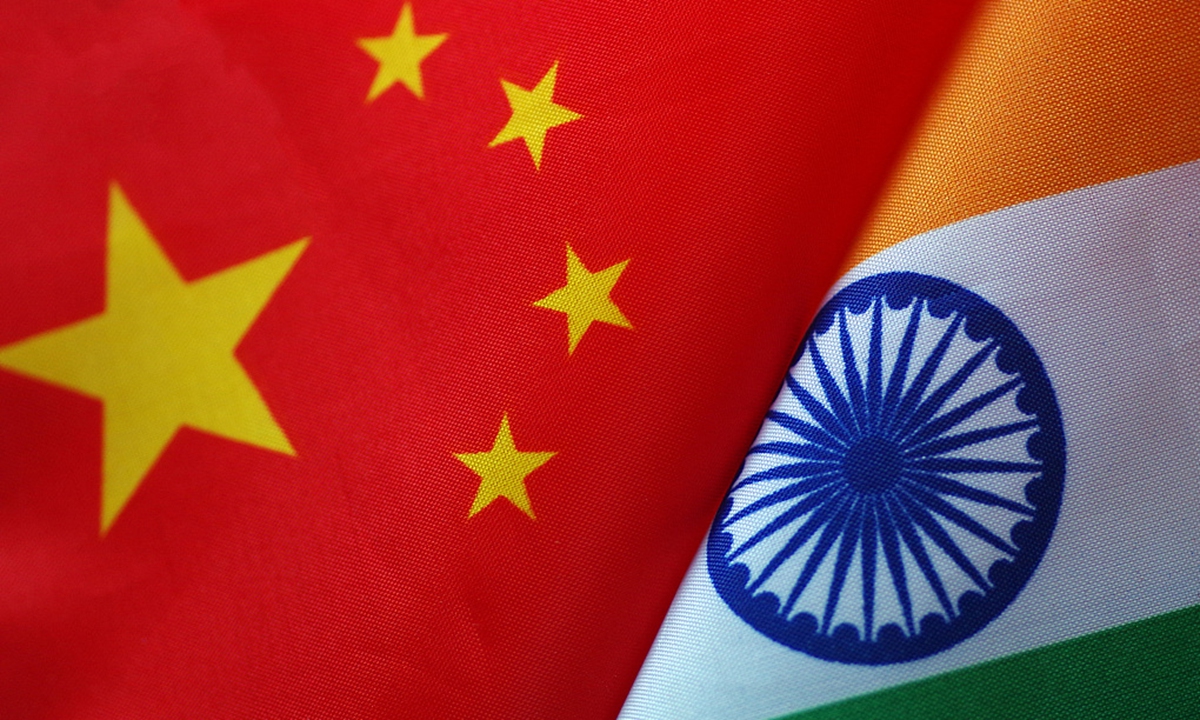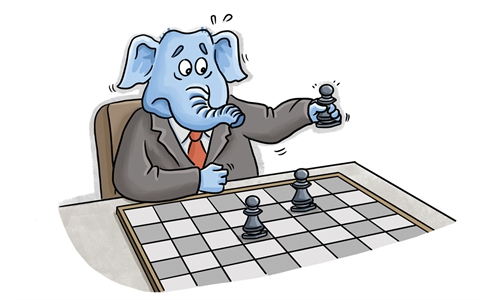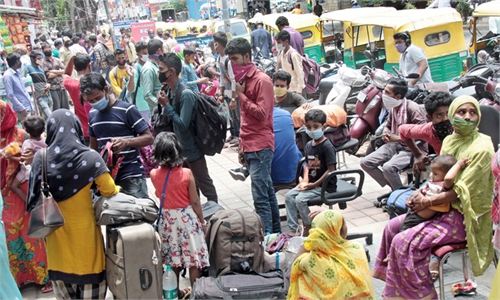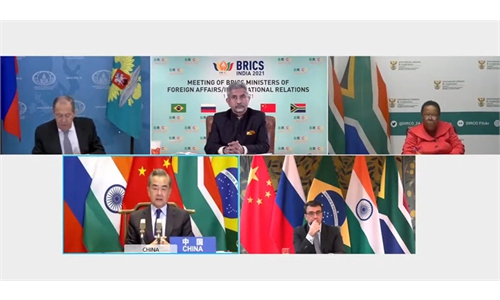
China India. Photo: VCG
China and India are two neighboring nations with major ancient civilizations. Both are important engines of economic growth, as well as the main forces driving the world's processes of multi-polarization and economic globalization. All of the similarities indicate that China and India share broad common interests and great potential for cooperation. China and India are each other's friends and partners - not threats or rivals. We should help rather than consume each other, and strengthen cooperation rather than be on guard against each other.The global efforts against the pandemic show that "mankind" is indeed a community with a shared future. Only through solidarity and collaboration can we pull through the crisis. As India is now pushing for a nationwide vaccination, we sincerely hope that the Indian side can make greater progress and soon bring the epidemic under control. We should continue to firmly support the World Health Organization (WHO) in playing a key role in the fight against the pandemic, build a global community of health for all, and contribute to an early global victory against the pandemic. In this regard, China and India can maintain close communication and cooperation.
As for bilateral economy, China and India are both major developing countries and major emerging economies boasting strong economic complementarity and great potential for cooperation. Since modern times, the two countries have witnessed rapid economic growth amid the globalization. As the two largest developing countries in the world, China and India have both similarities and complementarities in industrial structures. Both have the characteristics of River Civilizations. Having gone through industrialization development since modern times, the two countries share similar industrial structures too. By basic math, China is India's second largest trading partner.
With the development of global governance and the changing balance of power in international relations, developing and emerging market countries have an increasingly strong wish to participate in global governance. The desire poses a certain challenge to Western countries who have long been dominant in this field. The cooperation between China and India is of symbolic and decisive significance for emerging countries to better act in global governance.
While upholding the free trade system, China and India should start with bilateral relations, deeply engage in the global value chain, and expand multilateral trade in Asia. The two countries should work with WTO reform as an opportunity to safeguard multilateral free trade norms and jointly deal with the challenges from anti-globalization forces.
Both sides should jointly reform existing international multilateral organizations and further participate in global governance. In the international community, China and India can promote the reform of existing multilateral institutions, including the UN, the World Bank and the International Monetary Fund. Also, both are members of the Shanghai Cooperation Organization (SCO) and participants of the BRICS mechanism. With the advancement of multi-polarization in the international order, developing countries will play a more important role in global governance.
China and India should also deepen cooperation in the field of environmental protection, work on the protection of Himalayan region together and promote the implementation of 2030 Agenda for Sustainable Development. The Himalayan region is not only the China-India border, but also a key area for environmental protection in Asia and even the world at large. The two sides can make use of respective scientific and technological advantages, further cooperate on environmental protection in the Himalayan region, and then expand to all-round collaboration in other fields of climate change and environmental protection: including global warming, polar protection, and biodiversity conservation. We can start from Asia to promote global cooperation for sustainable development.
In the current so-called strategic competition between China and the US, it is not easy for India to maintain its strategic independence. However, looking back at the introduction of the Five Principles of Peaceful Coexistence, we should understand better that independence does not come easily. We need to work together to keep a balance in the current China-US-India relationship, and refrain from being led by the man-made antagonism of values, which can create a "New Cold War" featuring bloc confrontation.
As for the border disputes in China-India relations, it is an issue left over by history and cannot be resolved in anytime soon. Also, the border issue cannot tell the whole story of China-India relations. China is committed to resolving issues through dialogue and consultation and working to cool down the situation. The two sides have maintained communication through diplomatic and military channels, and the frontline troops of the two countries have disengaged in the Pangong Lake area.
Going forward, the two sides should implement the consensus reached by the two leaders, strictly abide by a series of agreements reached between the two sides, strengthen dialogue and communication, improve the management and control mechanism, sustain the current momentum of de-escalation, and avoid relapse of the situation on the ground.
What happened over the past few decades has proven once and again that highlighting differences will not help resolve problems. Rather, it will erode the foundation of mutual trust. The border dispute is a reality and should be given sufficient attention and taken seriously. However, the border issue is not the whole story of China-India relations and should be put at a proper place in the overall bilateral relations. The two sides should engage in dialogue on an equal footing, manage differences and find solutions through consultations. We should not allow differences to become disputes, confrontations or even crises.
The author is former vice minister of the International Department of the CPC Central Committee and a senior advisor of the Institute for Global Cooperation and Understanding, Peking University. opinion@globaltimes.com.cn



